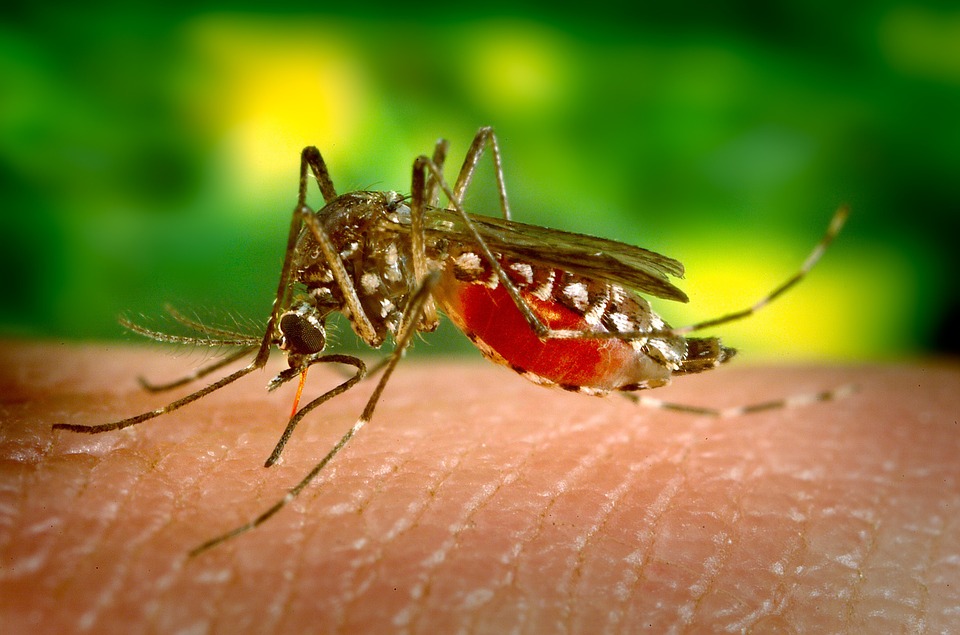Community
Rhode Islander dies from EEE, spraying to continue

The dispersal of aerial mosquito treatments in four areas of RI that state officials have determined to be at critical risk for the Eastern Equine Encephalitis (EEE) virus will continue Monday night after a successful first phase of the spraying plan Sunday night.
On Sunday night and early Monday morning, spraying was done in all of West Warwick and parts of Coventry, Cranston, Warwick, East Greenwich, and West Greenwich; as well as all of Central Falls, Pawtucket, and North Providence and parts of Providence, East Providence, Smithfield, Lincoln, and Cumberland. Spraying in northern Rhode Island (parts of Burrillville, North Smithfield, and Woonsocket) was not completed on Sunday night due to falling temperatures. (The effectiveness of spraying is limited when the temperature falls below 58 degrees.) Spraying in these northern areas, and parts of southern Rhode Island (parts of Westerly, Hopkinton, and Charlestown) is planned for tonight. Spraying will start at dusk tonight and will be completed by 4:30 a.m. Tuesday. The Rhode Island Department of Environmental Management (DEM) will provide more details on the timing when the flight plan is finalized. A link to a map with the areas that have been sprayed, and that will be sprayed, is below.
EEE is a rare, but serious illness that spreads when people are bitten by infected mosquitoes. On August 30th the Rhode Island Department of Health (RIDOH) announced the state’s first human case of EEE since 2010 in an individual in their 50s from West Warwick. At that time, it was announced that this individual was in critical condition. This individual passed away on September 8th. This was Rhode Island’s first fatal human EEE case since 2007.
Two mosquito detections of EEE have occurred in Central Falls and two have occurred in Westerly. A horse was also diagnosed with EEE in Westerly. In addition, several EEE cases and positive mosquitoes have been detected in Connecticut and Massachusetts, some in areas that border Rhode Island. Generally, spraying in Rhode Island is occurring in four-mile radiuses around positive samples and cases.
The pesticide that is being applied, Anvil 10+10, is being used at very low concentrations. Spraying will not occur over fish hatcheries, certified organic farms, surface drinking water supplies, and other open water bodies and coastal areas. Massachusetts officials used the same product in recent aerial spraying in Bristol, Plymouth, Worcester, and other counties. Anvil is registered by the US Environmental Protection Agency (EPA) and in Rhode Island and Massachusetts for this use.
The product being sprayed is being used at very low concentrations. No adverse health risks are expected with its use for mosquito control. Nonetheless, while spraying is occurring, it is best to err on the side of caution and limit time outdoors and keep windows closed. It is generally good for people to limit their exposure to pesticides. More information on health and spraying is available here. For FAQs on the impact of spraying on pets and livestock, click here.
Personal mosquito prevention measures remain everyone’s first defense against mosquito-borne illnesses, such as EEE. All Rhode Islanders (both people who live in areas being sprayed, and people who live in areas not being sprayed) are urged to continue taking these measures until the first hard frost of the year (typically mid to late October in Rhode Island).
Protect yourself
– Put screens on windows and doors. Fix screens that are loose or have holes. – At sunrise and sundown (when mosquitoes that carry EEE are most active), consider rescheduling outdoor activities that occur during evening or early morning. If you must be outside, wear long-sleeved shirts and long pants and use bug spray. – Use EPA-approved bug spray with one of the following active ingredients: DEET (20-30% strength); picaridin, IR3535; and oil of lemon eucalyptus or paramenthane. Always read the label and follow all directions and precautions. – Do not use bug spray with DEET on infants under two months of age. Children should be careful not to rub their eyes after bug spray has been applied on their skin. Wash children’s hands with soap and water to remove any bug spray when they return indoors. – Put mosquito netting over playpens and baby carriages.
Get rid of mosquito breeding grounds
– Get rid of anything around your house and yard that collects water. Just one cup of water can produce hundreds of mosquitoes; an unused tire containing water can produce thousands of mosquitoes. – Clean your gutters and downspouts so that they can drain properly. – Remove any water from unused swimming pools, wading pools, boats, planters, trash and recycling bins, tires, and anything else that collects water, and cover them. – Remove or treat any shallow water that can accumulate on top of a pool cover. Larvicide treatments, such as Mosquito Dunks can be applied to kill immature mosquitoes. This environmentally-friendly product is available at many hardware and garden stores and on-line. – Change the water in birdbaths at least two times a week and rinse out birdbaths once a week






You must be logged in to post a comment Login